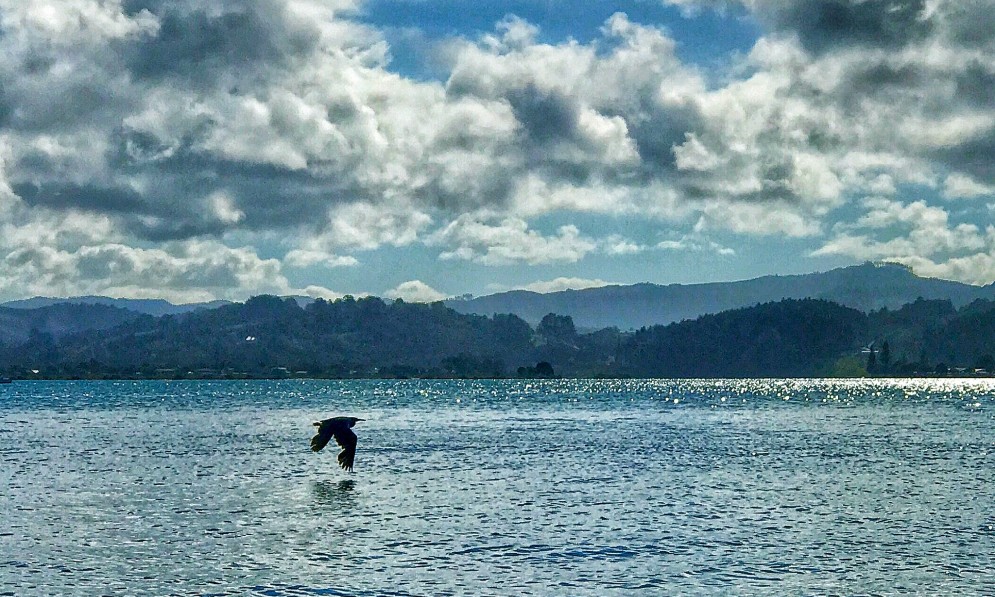Statistics New Zealand/Ministry for the Environment’s latest report of the state of the environment warns that land-based pollution, fishing and plastics are harming the seas around New Zealand and carbon dioxide emissions are acidifying the ocean.
In 2019, Forest & Bird said the Ministry for the Environment’s report on the state of New Zealand’s oceans made it clear New Zealand was failing to do even the minimum for our oceans – and this hasn’t changed. New Zealand’s oceans remain in a state of crisis.
Forest & Bird CE Nicola Toki says, “Aotearoa New Zealand is an island nation. As a country, we depend on the health of our ocean ecosystems. The fishing industry is already suffering the effects of degraded and warming oceans, with dying salmon stocks, and collapsed hoki and crayfish populations.
“This report shows how urgently all political parties and ministries needs to give our ocean the protection it deserves.”
According to the 2022 report, life in the sea around New Zealand is in serious trouble:
-
Ninety percent of indigenous seabirds and 82 percent of indigenous shorebirds are classified as threatened with extinction or at risk of becoming threatened with extinction.
-
Eighty-one percent of assessed marine invertebrate species are considered threatened with extinction or at risk of becoming threatened with extinction.
-
Twenty-two percent of marine mammal species are considered threatened with extinction or at risk of becoming threatened with extinction.
-
Thirteen percent of assessed macroalgae (seaweeds) are considered threatened with extinction or at risk of becoming threatened with extinction.
-
Twenty-nine of 112 identified marine taonga species were threatened with extinction, 57 were at risk of becoming threatened with extinction.
The true scale of the crisis affecting the oceans could be much worse because the extinction risks facing most marine mammals, fish, and invertebrates (shellfish, corals, crustaceans, etc.) remains unknown, due to lack of research.
Adding to the pressure, seas are warming and becoming more acidic because of greenhouse gases, and sea-level rise is happening faster than expected.
“Next year is election year and political parties need to start telling the public what they will do to turn around the ocean crisis,” says Ms Toki.
“Over the last five years we have seen progress with a National Plan of Action on Seabirds, a Threat Management Plan for Māui and Hector’s dolphin and the launch of Te Mana o te Taiao, New Zealand’s biodiversity strategy, but this report shows that much more needs to be done.”
Ms Toki says these challenges are surmountable, if we prioritise the solutions available to us now to turn things around.
“We need a collective effort from all the relevant agencies – Ministry for Primary Industries, Department of Conservation, Ministry for the Environment and regional councils – to undo the damage that has been done after decades of neglect.”
Six key commitments that would make a difference are:
-
Protecting the ocean floor by ending seabed mining and bottom trawling.
-
Cutting greenhouse gas emissions by ending new coal mines and putting a price on agricultural emissions will help to mitigate both ocean acidification levels and sea-level rise.
-
Reforming fisheries management to place a stronger emphasis on ecosystem-based fisheries management and zero bycatch.
-
Developing a programme to stop plastics from reaching the ocean.
-
Cleaning up our rivers, stormwater and sewage systems to stop polluting the coast.
-
Managing nutrient, sediment, and pathogen pollution from agriculture.
“There are conservation activities communities can get involved with that will help turn things around too," Ms Toki says.
“Nature-based solutions, such as dune and mangrove restoration, will help coastal communities combat sea-level rise. And protecting our seabirds through land-based pest management programmes to trap predators will help re-establish threatened species.”
Ms Toki says the solutions that can revive our ocean ecosystems are available now. “Collective, creative thinking across agencies and decision makers can and must turn this crisis around.”

